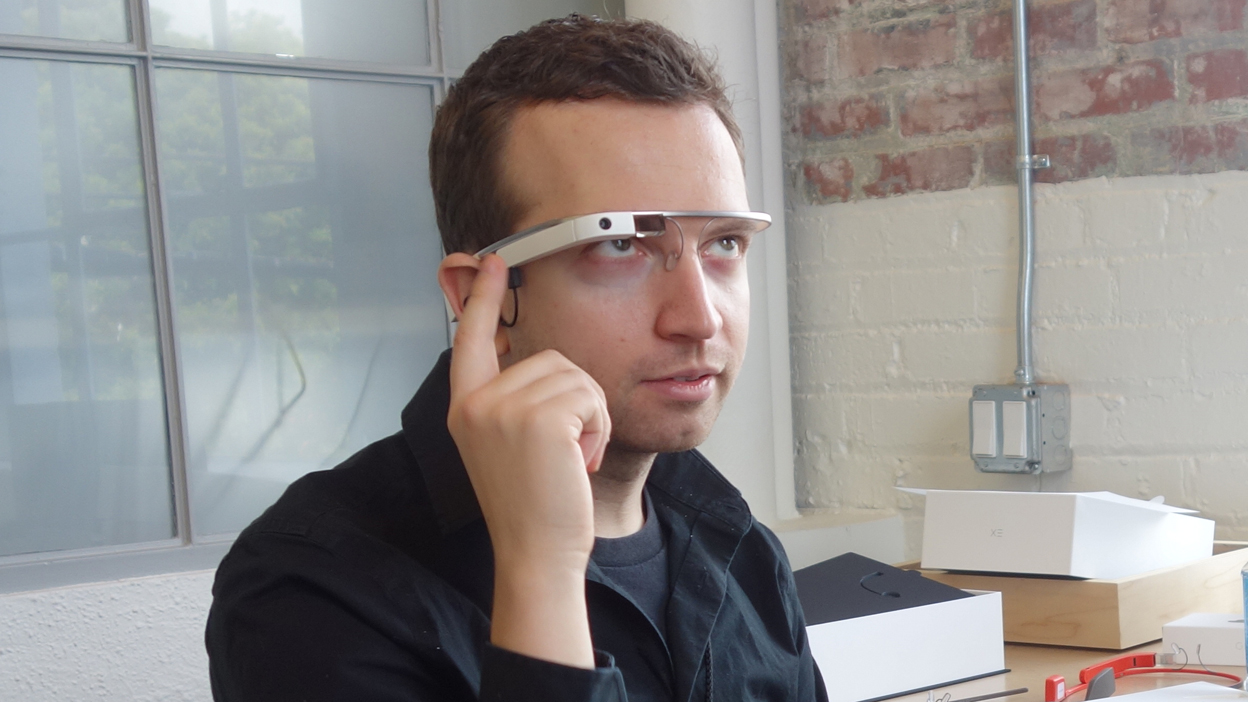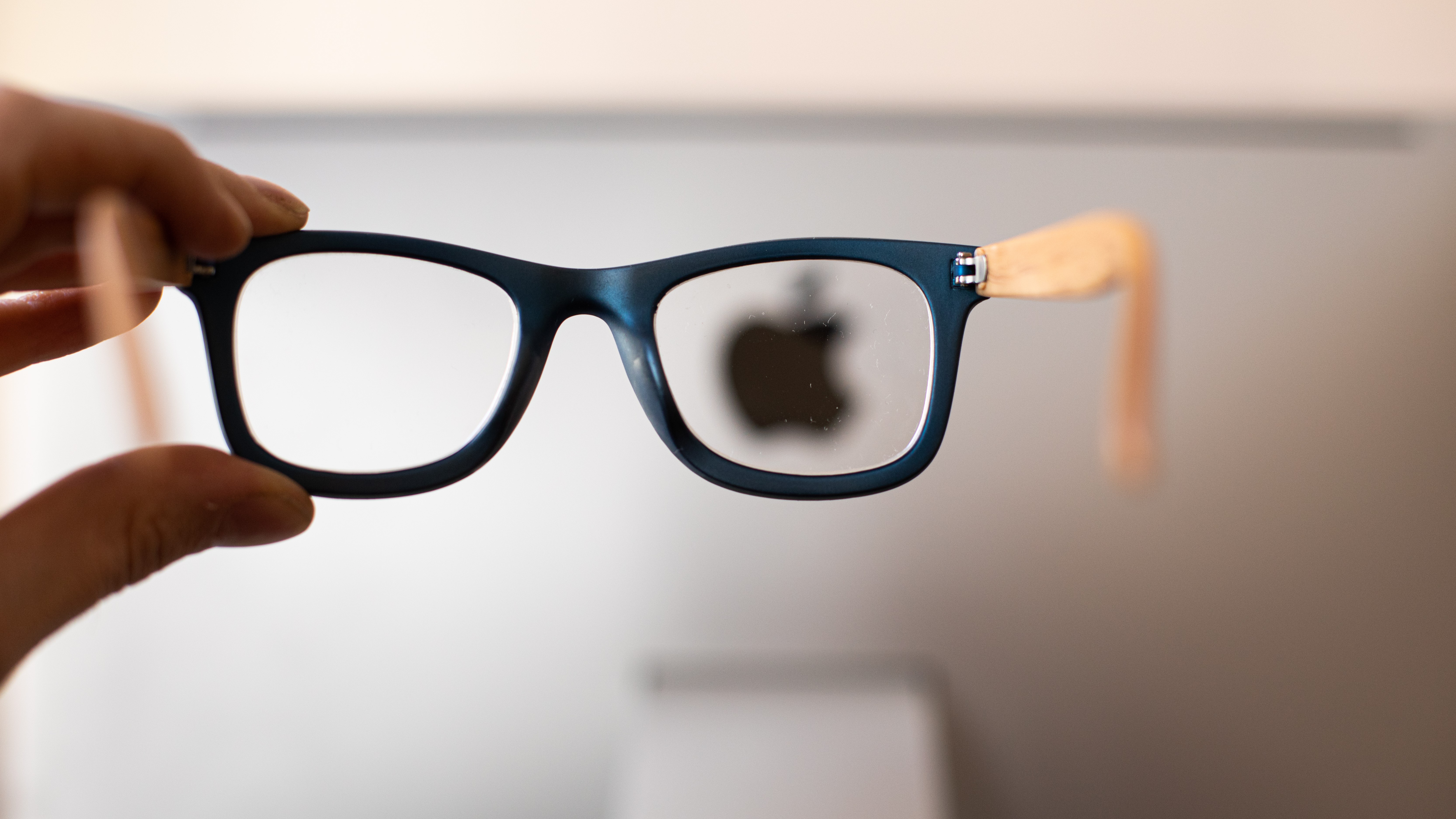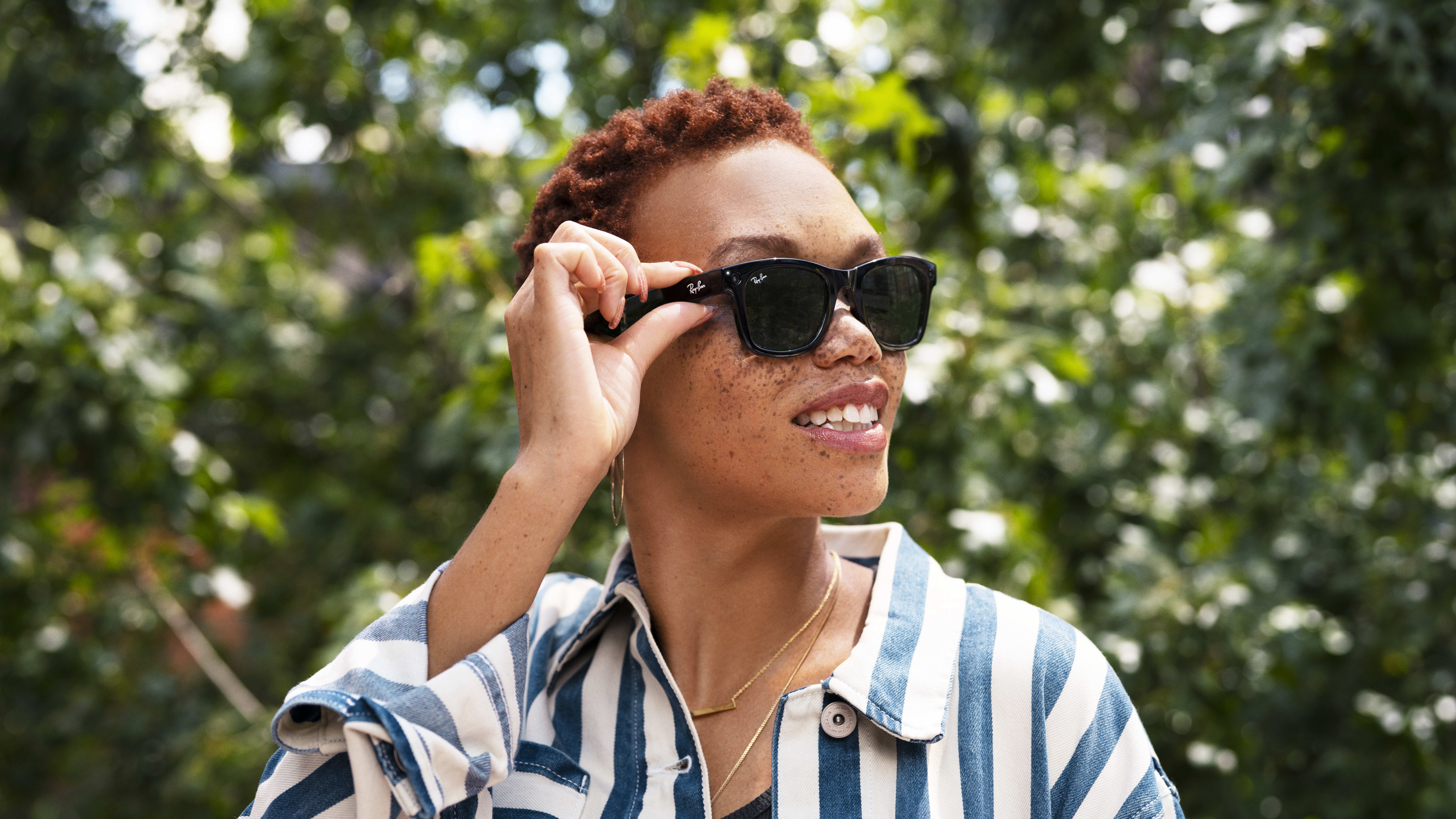Apple Glasses will be so huge they will make the iPhone seem puny
Opinion: The world in your pocket is a tiny world

Do you remember when Apple first took over the world? Before the iPhone, Apple took the world by storm with a pair of white headphones connected to a pocket-sized music player. The iPod changed everything. In retrospect, the iPod was tiny compared to the iPhone. When the Apple Glasses arrive, they will eclipse the iPhone, making it seem as tiny and limited as the iPod now feels.
The history of the iPod and the iPhone traces an exponential curve upward to the Apple Glasses. Even while the iPod was still a music player, Apple was thinking bigger. The iPod Classic added movie watching on the tiny display, as well as a cable to connect your iPod to a larger screen. The iPod wanted to get bigger. It wanted to show you more, on the biggest screen it could.
When the first iPhone was conceived, it wasn’t a phone at all. Apple lore says that Steve Jobs and his team started with a device the size of an iPad, then realized that they could shrink it down into a phone-sized product.
In other words, when Jobs envisioned the mobile Apple experience, he didn’t imagine it would be tiny and limited. He didn’t imagine Apple’s design and creativity distilled through a display that was less than four inches, as the original iPhone would be. He imagined the Apple experience in the palm of your hand, not hidden by it.
Apple Glasses will be bigger than a phone screen
With Apple Glasses, you will be through the window, into the world surrounding you
Apple Glasses will be much bigger than the best iPhone because the iPhone screen size is limited, and the limitation is pathetic compared to what Glasses will offer. An iPhone won’t reach beyond seven inches or so, ever, because then it would be an iPad. The best iPad is closer to the original vision, but it’s still too small.
The reason the iPad made sense is that it feels like a portal. You can hold the iPad and feel like you are peering into a different world. With the iPhone, you are staring down a hole. With the iPad, you are looking through a window.
With Apple Glasses, you will be through the window, into the world surrounding you. There will be no more window, no more limited display. The display will be limited by your space, and how much you can turn your head.
Sign up for breaking news, reviews, opinion, top tech deals, and more.
An iPhone or iPad display is only a tiny fraction of your entire field of view. When Apple Glasses offer an experience that is limitless in its scale, even the 12.9-inch iPad Pro will seem like a major compromise.
A new perspective: looking up instead of down
When you use the iPhone or iPad, you are giving your eyes to the device. You are aiming your attention down. You remove yourself from the world and focus on the mobile device in front of you.
When you use a wearable like Apple Glasses, your perspective will be lifted. Your eyes will be up. Literally and figuratively, you can stop looking down and missing the world around you.

The experience becomes part of the world around you, it doesn’t remove you from the world. I don’t think we know how important that shift will be. When we all stop looking down, and looking away, what will change in our outlook on the world and each other?
There has been a weird change in intersocial perspectives in recent years, and it seems like the worst impulses of antisocial behavior are winning. I think that is partly because the smartphone is antisocial. It encourages us to look down. It begs us to talk exclusively to the people who aren’t around us, to the detriment of those we are facing.
I am excited and nervous to experience the eyes-up perspective shift that Apple Glasses could bring. I don’t know if I’m personally ready for the change, but I think it will be better for future users if our technology is part of the world around us, and not removed from our world intentionally.
Experiences on the scale of life will help us empathize
The iPhone and other smartphones give us access to the world, but they take the world and cram them into a tiny display. It isn’t just the phone that’s small. Our perspective becomes small. When we see everything through a tiny phone screen, everything becomes the same insignificant miniature. The world becomes phone content.
What if we could change the scale of everything to its real, lifesize perspective? Instead of watching a news interview with tiny talking heads on a screen, what if we saw those people in front of us?

When we need to empathize with people we read about on the news or social media, it will be much harder to ignore a plight when it’s a lifesize form in front of us, speaking and breathing, rather than a talking head that we can obscure with our thumb.
We think that the smartphone gives us the world at our fingertips. This is more terrible than we imagine. Our smartphones shrink the world to the size of our phone screen. Every concern fights for pixels on a window that fits in your pocket.
A wearable experience like Apple Glasses will open us to a life-size perspective for the first time in mobile technology history. Instead of distilling and shrinking the human experience into a format that can fit in your hand, or that is limited by the size of your screen, we will finally get to share stories with characters, both real and imagined, that are as unavoidably big as we are.
Glasses will make social networks actually useful again
Smartphones have made my relationships better. Thanks to modern social networks, I’m able to stay connected to a much wider web of folks than was ever possible before. With good social networking apps on my smartphone, I can use those networks as my primary communications tool, instead of old phone numbers and addresses.
Unfortunately, social networks have lost much of their utility, but I think a wearable device like Apple Glasses will help us reclaim what made those networks useful and deliver their true potential. Apple Glasses could help me interact and fit in with my social crowd like never before.

I expect that Apple Glasses and similar wearables will recognize the people around me and, if they are in my social network, attach their most recent information to them. When I look at Dave, I want to see his last Instagram post about the Maryland Sheep and Wool Festival, his Facebook post about his kids, and his LinkedIn post announcing his new COO position.
Right now, our social networks are barely useful and degrading. They are a hodge-podge of bizarre personal details and promoted stories and products. For a brief moment, it felt like social networks were helping us reconnect and making our lives richer. We can have that again if we move the social network from the tiny, limited phone screen to the entire world that wearables like Apple Glasses could offer.
There was a time when the smartphone was revolutionary, as we stepped away from simple digital media players to an entirely digital world in the palm of our hands. It is only natural that we expand that digital world because our hands aren’t big enough to hold the possibilities.

Starting more than 20 years ago at eTown.com. Philip Berne has written for Engadget, The Verge, PC Mag, Digital Trends, Slashgear, TechRadar, AndroidCentral, and was Editor-in-Chief of the sadly-defunct infoSync. Phil holds an entirely useful M.A. in Cultural Theory from Carnegie Mellon University. He sang in numerous college a cappella groups.
Phil did a stint at Samsung Mobile, leading reviews for the PR team and writing crisis communications until he left in 2017. He worked at an Apple Store near Boston, MA, at the height of iPod popularity. Phil is certified in Google AI Essentials. His passion is the democratizing power of mobile technology. Before AI came along he was totally sure the next big thing would be something we wear on our faces.